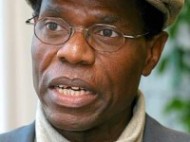Dear Mr. President,
Thank you for your great speeches that have given comfort and hope to many Kenyans during this trying time. I would also like to pass my condolences on the loss of your Nephew and his fiance, the loss of your/our country men and women. It is unfortunate that Kenya has to go through such a horrific tragedy. It has been said and it looks like there was a failure in the part of the government security apparatus resulting in the tragedy.
I will not get into the past but will put a few pointers for the post tragedy. Mr. President, I have never been a fan of yours and I doubt if that will change any time soon but there is a possibility that you could. I will start with the main message that I got from your speech. Many liked your speech and I must say that I was looking for every opportunity to dig holes into it but I was not successful. The only thing left for me after trying my best was to rush to a conclusion that it was all rhetoric and no action. So Mr. President, you have a chance to win me over and if you do, so will you win over many more Kenyans who do not care for you.
The main message that I got from you is that “WE ARE ONE.” My understanding of this is that, even though we have 42 tribes in Kenya, we are all Kenyans and belong to one Kenyan family. I hope I got the message right Mr. President. Your predecessor President Mwai Kibaki was a good man, I wouldn’t say I was a fan of his but I respected him as an elder. The problem I had with him was that he demonstrated a negative attitude towards the message “WE ARE ONE.” He may have said the words but his actions demonstrated otherwise and it is what I’d like for you to fix.
It was whispered to me that you will be chairing a National Security Council meeting today. Out of curiosity, I looked up who would be attending the meeting and my list came up as follows Uhuru Kenyatta, Githu Muigai, Mutea Iringo, Thuita Mwangi, Ndegwa Muhoro, Micheal Gichangi and David Kimaiyo. I know when you sit in that meeting, something will strike you about your “WE ARE ONE” message. You have spoken and declared that “WE ARE ONE.” From the National Security Council meeting that you had, I feel left out of the equation and so do many other Kenyans. The “WE ARE ONE.” message gets distorted and takes on a different meaning that I’m sure is not what you meant in your great speech.
The Westgate tragedy brought out the true Kenyan spirit Mr. President. You managed to capture that spirit in your speech. Can you capture that spirit in your actions? Ordinary Kenyans showed the world that “WE ARE ONE” by their actions and with their blood. Many lost blood and in their moment of need, many more lined up to share blood with those who needed it. A true “WE ARE ONE.” action. The ball is now in your court Mr. President, will you emulate them? Normally leaders provide the direction but this time Mr. President, the ordinary citizens have provided you with a direction to follow. You said “WE ARE ONE.” in words but Kenyans have signed a covenant and symbolized through their blood that “WE ARE ONE.” It is time for you to show commitment to this covenant by your actions. If you do Mr. President, you shall have won me and many Kenyans over. Kenyans await!!!!!
In Solidarity,
Eric Otiende

![image[2]](https://realtalkwitheric.files.wordpress.com/2013/09/image2.png?w=584)




